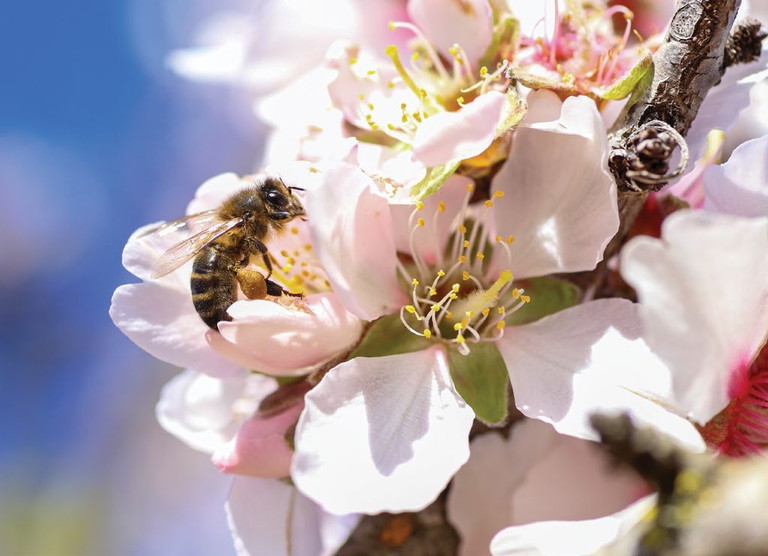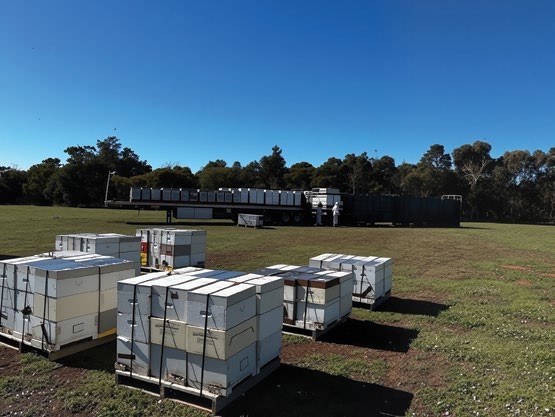BEEINFORMED
WA Beekeepers step up to support
SOUTH AUSTRALIA’S ALMOND POLLINATION CRISIS
Western Australia’s beekeeping industry has responded swiftly to an urgent call for help from South Australian almond growers facing a dire pollination season.
Words Michael Bellman, Interim Executive Officer, BICWA

The South Australian almond industry alone is worth over $220 million annually,
DUE to ongoing Varroa mite-related border restrictions, SA growers are unable to source their usual supply of beehives from the eastern states. With pollination fast approaching, the almond industry reached out to Western Australia for assistance in securing 2,000 hives.
Almond trees are entirely reliant on honey bees for pollination, and without sufficient hives during their short bloom window, growers face significant yield losses.
Pollination by honey bees underpins the production of over 35% of the food we eat. While honey is the most visible output of beekeeping, the true economic value of bees lies in the pollination services they provide — estimated at over $4.2 billion annually to Australian agriculture through managed pollination. In comparison, the commercial honey bee industry is worth around $430 million.
The SA almond industry alone is worth over $220 million annually, making this pollination task not just important, but essential to keeping high-value Australian crops in production.
“The value bees add to agriculture far exceeds what most people realise,” said BICWA Chair Melanie Tolich.
“ Without healthy, well-managed beehives, many of the foods we enjoy daily — almonds, apples, berries, melons — would vanish from supermarket shelves. ”
The Bee Industry Council of Western Australia (BICWA) acted quickly to coordinate support, and the response has been overwhelmingly positive. Thanks to the efforts of both small-scale and commercial beekeepers, 550 healthy WA hives are now being prepared for transport to SA.
“Getting hives ready for pollination doesn’t happen overnight,” said BICWA Board Director Brendon Fewster, who is leading the hive mobilisation together with Mike Spurge.
“It takes months of preparation to ensure bees are strong and healthy enough to perform this essential task. The fact we were able to deliver over 500 hives at short notice is a credit to the commitment and professionalism of our industry.”

These 550 hives represent a significant contribution, especially as WA beekeepers themselves are gearing up for their own pollination season. Once sent, the hives will not return to WA due to the state’s strict biosecurity protocols designed to keep pests and diseases out of Western Australia. BICWA supports these measures, which protect the health of WA’s managed and native bee populations.
Beyond this emergency support, BICWA continues to advocate for strong biosecurity, improved beekeeper preparedness, and sustainable industry development. Current initiatives include:
• BeeSentry hives — a landscape surveillance tool for early detection of pest or disease incursions
• Preparedness projects to train beekeepers in biosecurity and climate-related impacts
• Market development to promote the unique value of WA honey
“As our climate and biosecurity landscape changes, we need a strong, connected beekeeping community,” said Melanie Tolich.
“Pollination is essential to food production, and BICWA’s work ensures WA beekeepers are ready to deliver — not just for WA, but for all of Australia.”